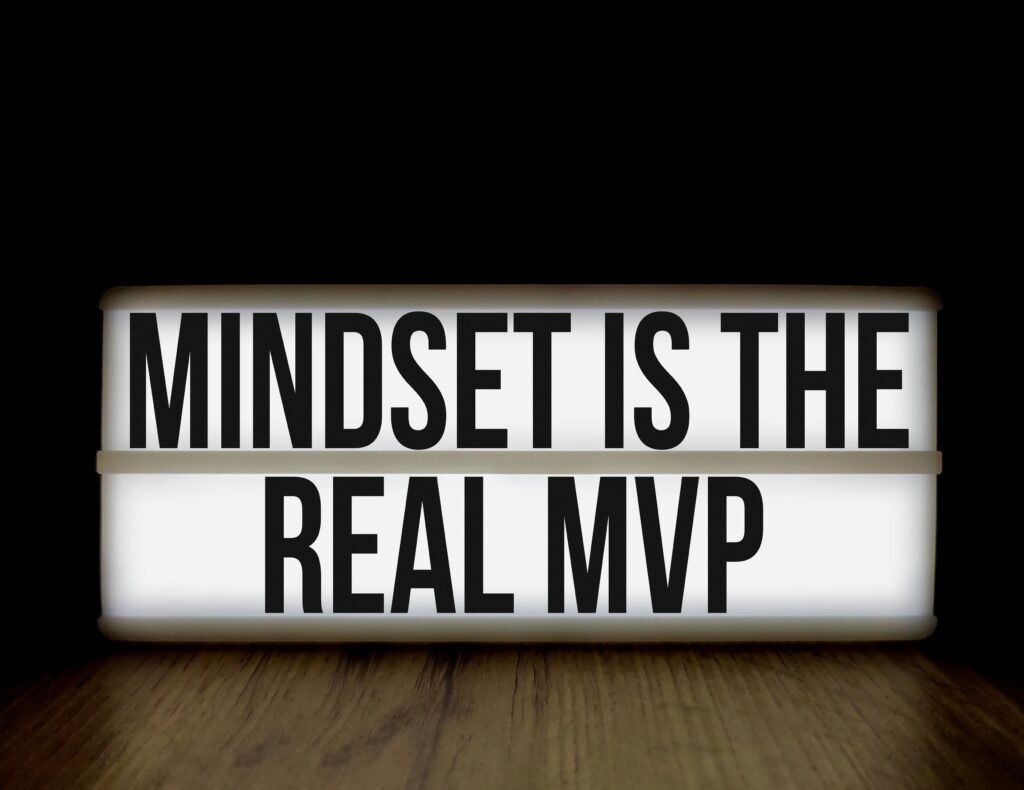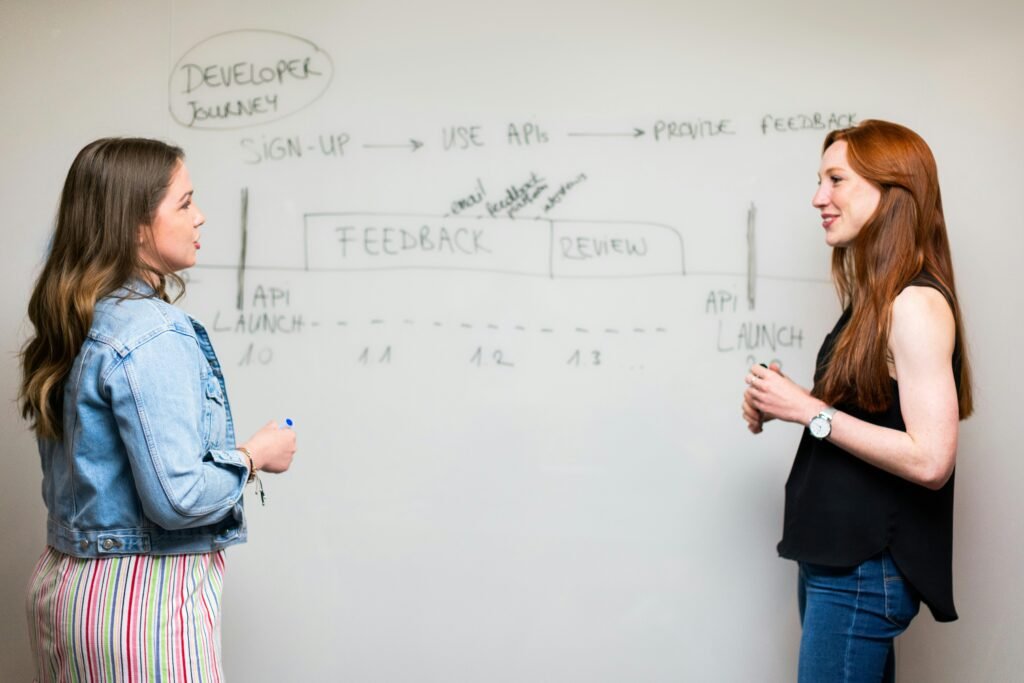
Understand the Basics of a Growth Mindset
A growth mindset is rooted in the belief that our abilities and intelligence can develop through dedication and hard work.
This perspective contrasts sharply with a fixed mindset, which holds that our talents are set in stone.
By fostering a growth mindset, you empower yourself to view every experience as an opportunity for learning and improvement.
Central to this mindset is the understanding that effort is the pathway to mastery.
When you believe that your skills can evolve, you’re more likely to engage in practices that challenge you and push your boundaries.
This can transform your approach to everyday tasks and long-term goals, as you begin to see challenges not as insurmountable obstacles but as opportunities to enhance your capabilities.
A growth mindset also shifts the way you perceive failure.
Instead of viewing setbacks as proof of your limitations, you start to see them as valuable learning experiences.
Each misstep becomes a chance to gather insights and refine your strategies.
This perspective reduces the fear of failure and encourages you to take risks, knowing that each attempt, successful or not, contributes to your growth.
Another key aspect is the recognition of the importance of persistence.
Individuals with a growth mindset understand that sustained effort and commitment are crucial for long-term success.
This awareness helps you stay motivated and resilient, even when progress seems slow or challenges appear daunting.
Adopting a growth mindset also involves embracing the process of learning itself.
When you cultivate a genuine passion for acquiring new knowledge and skills, you naturally become more open to new experiences and more resilient in the face of setbacks.
This curiosity-driven approach leads to continuous self-improvement and a deeper sense of personal fulfillment.
Moreover, a growth mindset encourages you to seek out feedback and use it constructively.
Instead of taking criticism personally, you learn to view it as valuable information that can help you grow.
By reflecting on feedback and implementing actionable changes, you turn it into a powerful tool for self-improvement.
In essence, a growth mindset transforms your outlook on life.
It empowers you to embrace challenges, learn from criticism, persist through obstacles, and maintain a lifelong passion for learning.
This dynamic approach not only enhances your personal and professional development but also enriches your daily experiences, making each day an opportunity for growth.
Embrace Challenges

Viewing challenges as opportunities is essential for growth.
Begin by taking on small daily challenges, like trying a new hobby, learning a new skill, or tackling a difficult task at work.
By consistently embracing challenges, you develop resilience and adaptability.
When you face a challenge, it’s important to maintain a positive outlook.
Instead of seeing difficulties as threats, view them as chances to learn and grow.
This perspective can transform stressful situations into valuable experiences that contribute to your personal development.
Another effective way to embrace challenges is by setting specific, achievable goals.
Breaking down larger tasks into smaller, manageable steps can make the process less overwhelming and more rewarding.
Each completed step serves as a milestone that boosts your confidence and keeps you motivated to continue.
Surround yourself with a supportive community that encourages your efforts and celebrates your progress.
Whether it’s friends, family, or colleagues, having a network of people who believe in your potential can make a significant difference.
They can provide valuable insights, offer constructive feedback, and help you stay focused on your goals.
It’s also helpful to adopt a mindset of curiosity and experimentation.
When you approach challenges with an open mind and a willingness to try new methods, you’re more likely to discover innovative solutions.
This experimental approach reduces the pressure to get everything right on the first try and encourages continuous learning.
Additionally, it’s important to acknowledge and celebrate your efforts, even if the outcome isn’t perfect.
Recognizing the hard work you put into facing challenges reinforces the value of persistence and effort.
This positive reinforcement can motivate you to take on new challenges with confidence and enthusiasm.
Lastly, remember that challenges are an inevitable part of life.
By embracing them, you not only enhance your growth mindset but also build the resilience needed to navigate future obstacles.
This proactive approach to challenges ultimately enriches your daily experiences and drives you toward your long-term goals.
Learn from Criticism

Receiving feedback can be a challenging experience, but it is an invaluable component of self-improvement.
When faced with criticism, it’s essential to shift your perspective and view it as constructive guidance rather than a personal attack.
This mindset allows you to harness feedback as a powerful tool for growth.
Start by actively listening to the feedback you receive.
Focus on understanding the underlying message rather than reacting defensively.
This can be particularly difficult, especially if the criticism touches on areas where you feel vulnerable.
However, adopting a receptive attitude can help you glean insights that are crucial for your development.
Once you have received the feedback, take the time to reflect on it thoughtfully.
Consider the source and context of the criticism, as well as its relevance to your personal and professional goals.
Reflection allows you to discern which aspects of the feedback are most pertinent and can guide you in making meaningful adjustments.
Identify actionable steps based on the feedback.
Breaking down the criticism into specific areas for improvement can make the process less overwhelming and more manageable.
For instance, if the feedback suggests that you need to enhance your communication skills, you could start by practicing active listening, engaging in public speaking exercises, or seeking out resources that offer communication strategies.
Implementing changes based on feedback is where true growth occurs.
Set realistic goals for incorporating these improvements into your daily routine.
Consistent practice and effort are key to transforming criticism into positive development.
By focusing on incremental progress, you can steadily build new skills and habits.
It’s also helpful to seek additional perspectives.
Sometimes, a single piece of feedback might not provide the full picture.
Engage with a mentor, coach, or trusted colleague to gain further insights and validate the areas where you need to improve.
This collaborative approach can offer a more comprehensive understanding and additional strategies for growth.
Additionally, it’s important to maintain a balanced view of criticism.
While it is crucial for development, not all feedback will be equally valuable or applicable.
Learn to discern constructive criticism from unhelpful negativity.
This discernment ensures that you remain focused on productive growth without becoming discouraged by unwarranted critique.
Lastly, use criticism as an opportunity to foster resilience.
Each piece of feedback, whether positive or negative, contributes to your broader journey of self-improvement.
Embracing this process with an open mind and a positive attitude will help you cultivate a growth mindset that continually drives you forward.
Cultivate a Passion for Learning

Cultivating a passion for learning is essential for nurturing a growth mindset.
To foster this passion, integrate learning into your daily routine.
Start by dedicating time each day to read books, articles, or journals that interest you.
Reading not only broadens your knowledge but also stimulates curiosity and critical thinking.
Additionally, consider enrolling in online courses or attending workshops that align with your interests or professional goals.
Websites like Coursera, Khan Academy, and edX offer a wealth of resources across various subjects, making continuous learning accessible and convenient.
These platforms allow you to explore new topics at your own pace, fitting seamlessly into your schedule.
Engage in active learning by participating in discussions, asking questions, and seeking out new perspectives.
This approach not only enhances your understanding but also helps you retain information better.
Joining study groups or online forums can provide opportunities to interact with others who share your interests, fostering a sense of community and collaboration.
It’s also beneficial to challenge yourself with new and diverse learning experiences.
Experiment with different methods of learning, such as hands-on projects, interactive simulations, or practical applications of theoretical concepts.
This variety keeps the learning process engaging and helps you discover what methods work best for you.
Another key aspect of cultivating a passion for learning is to stay curious and open-minded.
Embrace a mindset of lifelong learning, where you continuously seek out new knowledge and skills.
This curiosity-driven approach can lead to unexpected discoveries and innovations, enhancing both your personal and professional life.
Don’t forget to leverage technology to support your learning journey.
Use educational apps, podcasts, and audiobooks to learn on the go.
These tools can transform mundane activities like commuting or exercising into valuable learning opportunities.
Lastly, make learning enjoyable by aligning it with your passions and interests.
When you’re genuinely interested in a subject, you’re more likely to stay motivated and engaged.
Find ways to connect learning with your hobbies or career aspirations, turning it into a fulfilling and rewarding experience.
By incorporating these strategies, you can develop a robust passion for learning that fuels your growth mindset and drives continuous self-improvement.
Stay Persistent

Persistence is crucial for achieving growth.
To maintain motivation, it’s important to set clear, attainable goals that guide your progress.
Break down larger objectives into smaller, actionable steps to make them more manageable and less overwhelming.
Celebrate small victories along the way.
Each milestone you reach is a testament to your hard work and dedication.
Recognizing these achievements can boost your morale and keep you motivated to continue.
Whether it’s treating yourself to something special or simply taking a moment to acknowledge your progress, celebrating your efforts reinforces the value of persistence.
Surround yourself with a supportive community that believes in your potential.
Friends, family, and colleagues who encourage your efforts and celebrate your progress can provide invaluable support.
They can offer different perspectives, constructive feedback, and the motivation needed to stay on track.
A positive and encouraging environment can make a significant difference in your journey toward growth.
It’s also essential to cultivate a resilient mindset.
Understand that setbacks are a natural part of any growth process.
Instead of viewing them as failures, see them as opportunities to learn and improve.
Reflect on what went wrong and how you can adapt your approach moving forward.
This resilience will help you navigate challenges with a constructive attitude, turning obstacles into stepping stones for further development.
Additionally, keeping a journal can be a powerful tool for maintaining persistence.
Document your goals, track your progress, and reflect on the challenges you encounter.
This practice not only provides a record of your journey but also helps you identify patterns and areas where you can improve.
Writing down your thoughts and experiences can offer clarity and keep you focused on your long-term objectives.
Finally, maintain a flexible approach.
Understand that the path to growth is not always linear, and being adaptable is key.
Adjust your strategies as needed and remain open to new methods and ideas.
Flexibility allows you to pivot when necessary, ensuring that you continue to make progress even when faced with unexpected challenges.
Celebrate Effort Over Success

Valuing effort over results creates a foundation for sustained growth.
Acknowledge the dedication you bring to each task, regardless of the outcome.
This focus on effort encourages a mindset that values persistence and continuous improvement.
Reward yourself for the hard work you put in, whether through small treats, sharing your achievements with friends, or simply taking a moment to reflect on your perseverance.
When you shift the focus from results to effort, you create a positive reinforcement loop.
This approach helps reduce the fear of failure and promotes a willingness to take on new challenges.
As you celebrate your efforts, you reinforce the belief that hard work leads to growth, making it easier to stay motivated and resilient in the face of difficulties.
Encouraging a culture of effort within your community can also be beneficial.
When friends, family, or colleagues see you valuing hard work, they are likely to adopt a similar mindset.
This collective emphasis on effort over success fosters an environment where everyone feels supported in their growth journey.
It’s also important to set realistic expectations and recognize that effort doesn’t always lead to immediate success.
Understanding this helps you stay committed to the process, even when progress seems slow.
Over time, the cumulative effect of your efforts will become evident, and you’ll find that consistent dedication pays off.
Engage in activities that challenge you and push your boundaries.
By doing so, you build resilience and adaptability, skills that are crucial for long-term growth.
Each new challenge tackled with effort adds to your personal and professional development, making you more capable of handling future obstacles.
Lastly, track your progress to see how your efforts translate into improvements over time.
Keeping a journal or using a progress-tracking app can provide a visual representation of your growth, reinforcing the value of persistence and effort.
This documentation can be a powerful motivator, reminding you of how far you’ve come and encouraging you to continue striving for excellence.
Practice Self-Reflection

Self-reflection is a powerful tool for personal growth, enabling you to gain deeper insights into your actions, decisions, and overall progress.
To make the most of this practice, regularly set aside dedicated time for introspection.
Whether it’s through journaling, meditation, or taking a quiet walk, these moments of reflection can help you evaluate your journey and align your actions with your long-term goals.
Begin by asking yourself meaningful questions about your recent experiences.
What went well? What challenges did you face?
How did you respond to those challenges, and what could you do differently next time?
These questions can guide your reflection, helping you to identify patterns and uncover areas where you can improve.
Documenting your thoughts and observations in a journal can be particularly effective.
Writing not only helps you organize your thoughts but also creates a record of your progress over time.
Reviewing past entries can offer valuable insights into your growth, revealing how far you’ve come and highlighting recurring themes that may need further attention.
Meditation is another powerful method for self-reflection.
By creating a quiet space to focus on your thoughts, you can achieve a heightened state of awareness and clarity.
This mindful practice allows you to tune into your inner self, fostering a deeper understanding of your emotions and motivations.
Additionally, consider seeking feedback from trusted individuals in your life.
Friends, family, or mentors can provide external perspectives that you might overlook.
Their insights can help you see your actions from a different angle, offering new ways to enhance your personal and professional development.
Self-reflection is not just about identifying weaknesses; it’s equally important to acknowledge and celebrate your strengths and achievements.
Recognizing what you do well reinforces positive behaviors and boosts your confidence.
Balancing this acknowledgment with constructive self-critique creates a holistic approach to personal growth.
Incorporating self-reflection into your routine requires consistency and honesty.
It’s an ongoing process that evolves as you grow.
By making self-reflection a regular habit, you empower yourself to continuously improve, adapt, and move closer to realizing your full potential.
